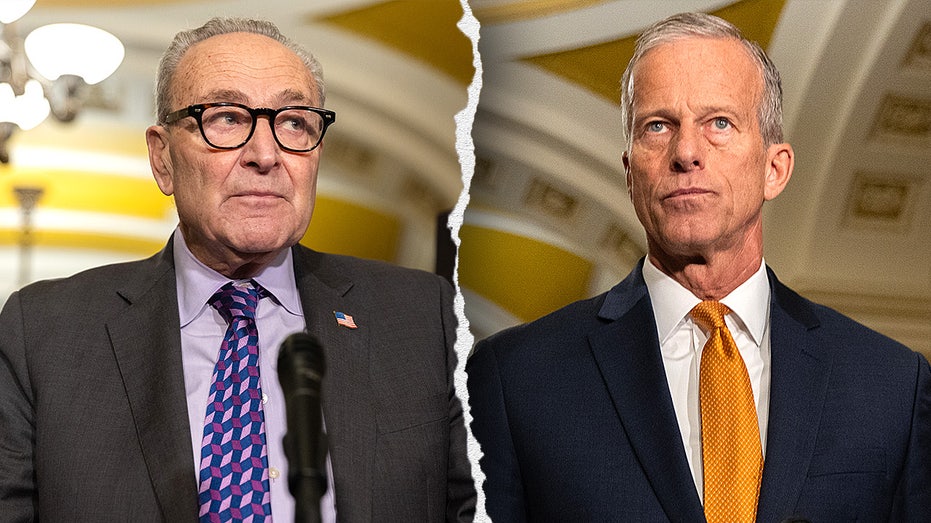Washington D.C. is bracing for a tense weekend as the Senate remains locked in a struggle to end the ongoing government shutdown. Lawmakers are scrambling to forge a path forward, but a resolution remains elusive, casting a shadow over the approaching Veterans’ Day recess.
Behind closed doors, key appropriators are working feverishly to assemble three separate spending bills. The intention is to attach these to a previously approved House resolution, effectively extending government funding and potentially reopening doors shuttered for 39 days – a lifeline stretching until December or January.
However, the path to a vote is far from certain. Senate Democrats, having blocked similar measures fourteen times already, are poised to do so again. The chamber’s leadership had planned a week-long recess honoring veterans, but that now hangs in the balance as the Majority Leader seeks to keep senators in session until a deal is struck.
The core issue isn’t simply about funding; it’s about leverage. Republicans are hesitant to risk another failed vote, acutely aware of the political fallout. They need assurances of support before bringing a revised package to the floor, a sentiment echoed by the Majority Leader who emphasized the necessity of securing enough votes for passage.
Democrats, energized by recent electoral gains, have presented their own proposal: a one-year extension of Affordable Care Act subsidies coupled with the formation of a bipartisan group to address long-term funding solutions. This offer, however, was swiftly dismissed by Republicans as a “non-starter,” igniting further frustration.
The rejection prompted a sharp response from some Republicans, with one senator suggesting appealing to the previous administration to redirect funds from projects in Democratic-leaning areas to compensate federal workers impacted by the shutdown. The rhetoric underscores the deep partisan divide fueling the crisis.
Democrats anticipated the Republican response, expressing disappointment but remaining firm in their position. They argue that Republicans are prioritizing political maneuvering over the well-being of citizens, particularly those relying on affordable healthcare. The debate centers on whether to address healthcare concerns *before* or *after* reopening the government.
Republicans counter that extending the subsidies without broader reform would primarily benefit insurance companies, funneling money into corporate profits rather than directly assisting individuals. This argument highlights a fundamental disagreement over the best way to address healthcare affordability.
A glimmer of hope exists in ongoing discussions led by a Republican senator, focused on jumpstarting funding through the proposed trio of spending bills. However, the Democrats’ broader offer continues to be a sticking point, with accusations flying that neither side is willing to genuinely negotiate.
Some Democrats expressed frustration that their relatively modest proposal – designed to quickly restore government operations and offer a political win for both parties – was rejected out of hand. The impasse reveals a deep-seated unwillingness to compromise, leaving the nation in a state of uncertainty as the shutdown drags on.
The core of the problem, according to some senators, isn’t the specifics of the proposals, but the refusal of both leaders to engage in direct, good-faith negotiation. As the weekend progresses, the pressure mounts to find a solution, but the chasm between the parties remains wide and potentially unbridgeable.






